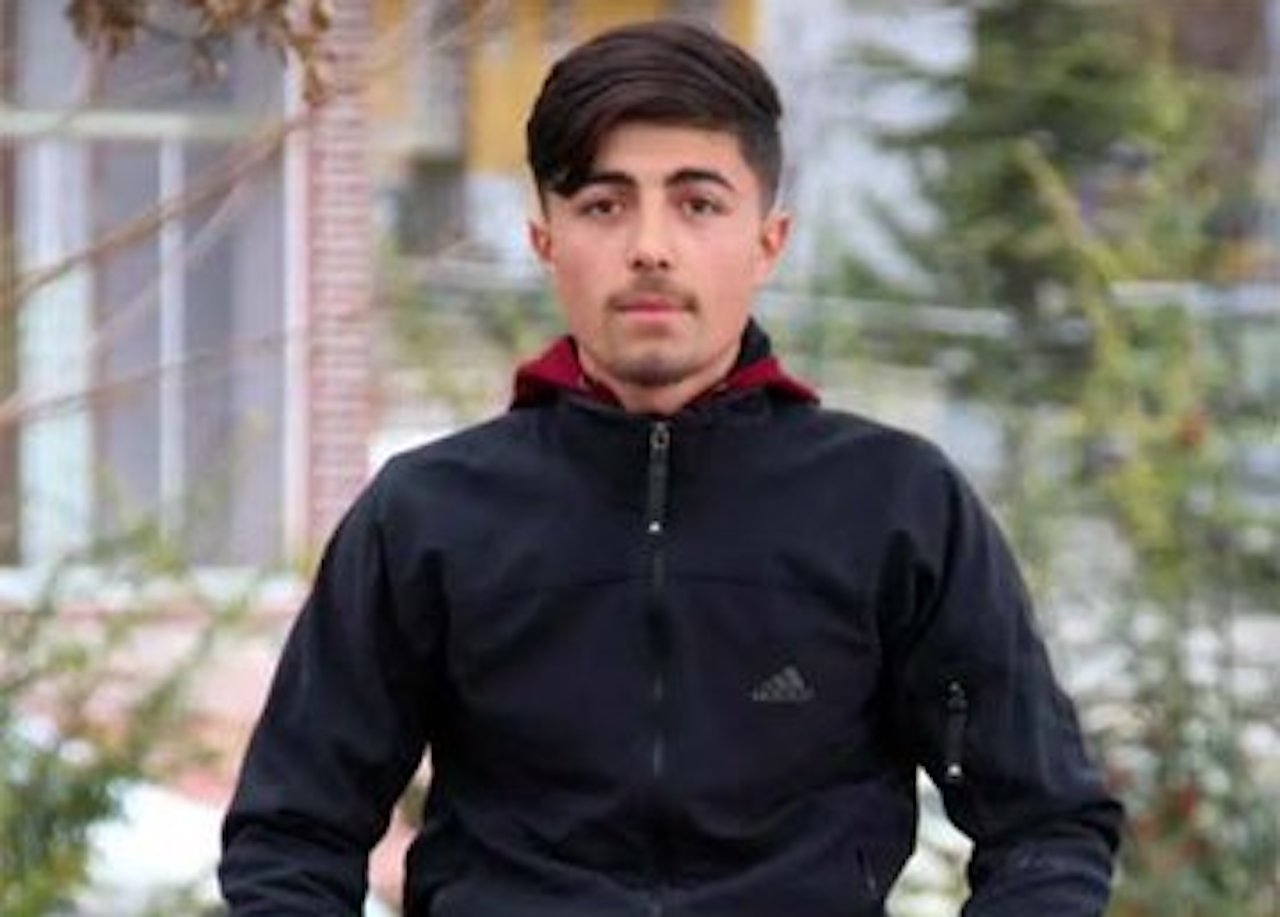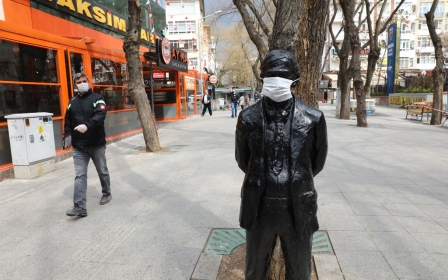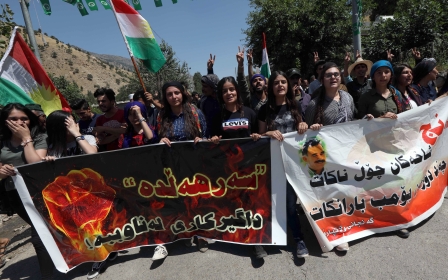Killing of Kurdish man in Turkish capital provokes outrage

Outrage has spread across social media over the killing of a 20-year-old Kurdish man in the Turkish capital Ankara on Sunday.
According to Turkish news media, Baris Cakan was sitting in a park in the Etimesgut district of the city when he was attacked by three men, and stabbed in the heart.
An initial report by the pro-Kuridsh Mezopotamya News Agency quoted a family member saying that he had been attacked for listening to Kurdish music. Three alleged attackers have been detained.
Burak Gultekin, an adviser to Turkey’s Interior Minister Suleyman Soylu, disputed the original account in a tweet, saying a fight had broken out due to loud music being played in a car during the call to prayer, and that the incident had nothing to do with "Kurdishness".
In a statement released on video by the Ensonhaber news site, Cakan's father also said that the killing had stemmed from his son asking the three men to turn down the volume of their music while the call to prayer was being played.
New MEE newsletter: Jerusalem Dispatch
Sign up to get the latest insights and analysis on Israel-Palestine, alongside Turkey Unpacked and other MEE newsletters
Cakan's death has sparked fury from pro-Kurdish activists and politicians, who branded the attack a hate crime.
The pro-Kurdish Peoples' Democracy Party (HDP) said in a statement that "the mindset that killed Baris feeds itself from the closure of schools that offer Kurdish education and the removal of Kurdish signs".
Although President Recep Tayyip Erdogan's ruling Justice and Development Party (AKP) has been praised in past for allowing the minority some cultural and linguistic rights, in recent years it has clamped down on Kurdish organisations and Kurdish-language signs and eliminated most of its media outlets.
On 30 May, Kurdish signs in the southeastern city of Siirt were removed by order of the government-appointed trustee, while a library named after the linguist and writer Celadet Bedir Khan was demolished.
A conflict in the southeast of the country with armed groups linked to the Kurdistan Workers Party (PKK) has resulted in the deaths of at least 4,869 people since July 2015, according to figures from the International Crisis Group, and left much of the region in ruins. The PKK has waged a decades-long insurgency against the Turkish state.
Global comparisons
A number of people drew comparisons between the death of Cakan and the police's killing of George Floyd in the US, which has seen the country engufled in protests in recent days.
Mustafa Bali, spokesperson for the Syrian Democratic Forces (SDF) - a group in Syria largely dominated by the PKK-linked Kurdish People's Protection Unit (YPG) militia - tweeted a picture of an activist holding a picture of Floyd merged with one of holding a picture of Cakan.
He later appeared to have deleted the tweet.
"20 years old Baris Cakan was stabbed to death in Ankara last night by three Turkish men because he had been listening to Kurdish music on his balcony," he said in a separate tweet, which remains online.
"Turkish fascism has been stronger due to Erdogan's policy, Turkey will not recover unless Erdogan's policy is criminalised."
The HDP representative to the US, Giran Ozcan, compared Cakan's case to Floyd's, while also referencing Iyad Halak, an autistic Palestinian man who was shot dead by Israeli police in the Old City of Jerusalem on Saturday.
“Injustice anywhere is a threat to justice everywhere.” – Martin Luther King Jr.#BarisCakan Kurdish.#GeorgeFloyd Black.#IyadHalak Palestinian.
— Giran Ozcan (@GiranOzcan) June 1, 2020
Look up their names. pic.twitter.com/WcmG8ZPRw3
Another HDP MP, Garo Paylan, criticised the government's "hypocrisy" for condemning racist police violence in the US while ignoring hate crimes in Turkey.
Last week, Erdogan condemned the "racist and fascist" mentality in the US that led to Floyd's killing:
The racist and fascist approach that led to the death of George Floyd in the US city of Minneapolis as a result of torture has not only deeply saddened all of us, but it has also become one of the most painful manifestations of the unjust order we stand against across the world.
— Recep Tayyip Erdoğan (@RTErdogan) May 28, 2020
In response to Erdogan's tweet on Floyd, Kurdish journalist Cahida Dersim tweeted a thread listing many of those killed by the Turkish police in recent years.
Middle East Eye delivers independent and unrivalled coverage and analysis of the Middle East, North Africa and beyond. To learn more about republishing this content and the associated fees, please fill out this form. More about MEE can be found here.





